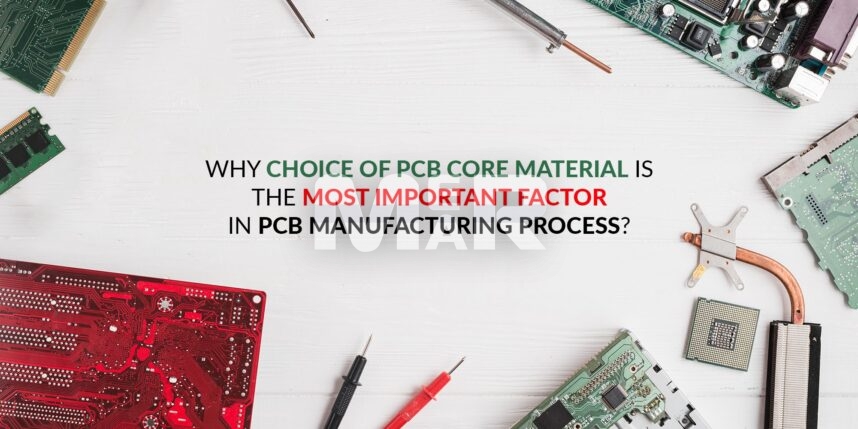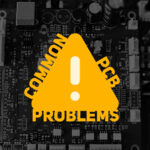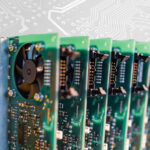Why Choice of PCB Core Material is the most important factor in PCB Manufacturing Process?

The performance of a PCB Board as well as the efficacy of the final product depends on the choice of PCB Material. There are a range of properties that help in the selection of board material. In addition to this, the design requirements of the board also have a lot to do with the choice of PCB material.
To understand the choice of material further, let us look at the different layers in a PCB board.
A PCB board largely consists for 4 layers:
- Substrate
- Laminate
- Solder Mask
- Silk Screen
Substrate
When it comes to the substrates, there are a wide variety of materials that are used. Some of these include:
- Aluminium
- Insulated Metal Substrate- FR1 through FR6
- Polytetrafluoroethylene
- Polyimide
- Flexible substrates such as Pyralux and Kapton
The most common material is Fiber-glass FR4 that works well on account of its rigidity and thickness. Insulated Metal Substrates also work well, since they conduct heat efficiently and are mechanically robust.
In addition, substrates must also meet certain desired properties like glass transition temperature (Tg) or the point where heat causes the material to soften.
Laminate
Laminates are important on account of properties such as Coefficient of Thermal expansion as well as its tensile strength. Common materials used for laminates include:
- CEM-1 to CEM-5
- Teflon
- FR2 to FR6
- Copper foil is also often applied to both sides of the substrate.
Solder mask
This layer above the copper foil acts as an insulation layer. While it guards against the external contaminants it also provides the necessary isolation between elements such as pads, copper traces and drill holes.
Silkscreen
A silkscreen, of course is used to add symbols that aid in easy assembly.
Some of the factors that go into the choice of material
Types of Board
The choice of circuit board material, is determined by the type of board. There can be different types of Circuit Boards such as:
- Single-sided, double-sided and embedded
- Single versus multi layer
- Rigid or flexible
- Circuit boards with different electrical functionality
Basis the kind of board, the material requirement can be vastly different. For example, while a single sided PCB requires one layer of substrate, a double-sided PCB’s substrate requires metal layers attached to both sides. Similarly, a rigid PCB uses a solid material such as fiber-glass, while a flexible PCBs uses flexible plastic.
Thermal factors
In choosing the material for PCB manufacturing, the other thing that needs to be kept in mind is the thermal threshold of materials. PCB material with low thermal conductivity can turn out to be extremely detrimental for applications that are heat-intensive.
Other factors that aid selection of material for a PCB Manufacturer include:
- For mission-critical industries such as medical applications, reliability and performance are the major selection criterion.
- Weight as well as ability to handle high amount of power are other areas to consider.
- Expected lifespan is yet another factor to consider for industries such as electronic appliances
- It is also increasingly important to design boards that can minimize electromagnetic radiation as well as prevent interference from external sources of noise.
- For industries such as LED Lighting, optimum heat management and improved light output are important selection criterion. Metal Core PCBs, therefore, strongly make the cut. These have a thin layer of dielectric material, which can dissipate heat efficiently.
Going forward with the miniaturization of electronic products, PCB manufacturing will increasingly have to cater to not just smaller but also densely packed boards. 3D moulded plastic boards are thus mediums of the future. The choice of PCB material will have to increasingly cater for:
- Miniaturisation
- High speed
- Long shelf life
- Reliability
To this end, choosing the right PCB Manufacturer is of critical importance. Years of experience and expertise help a PCB Manufacturer, USA offer industry leading products. Having understood the needs of your product, they can ensure that they choose the right components that align with your bespoke requirements. This will ensure that you have a reliable product that can stand the test of time. The advantage of going with a well-known PCB Manufacturer is also that he is able to offer quick lead time while custom designing your PCB. This means that not only do you have a bespoke product but also the time to go to market is significantly quicker.
Our experienced PCB material management team and advanced material management system can efficiently manage your projects and requirements. We have the resources available to locate parts and materials you need to eliminate the delay and reach quickly to the result.
Want to Get Your PCB Assembled from Mer-Mar Electronics? Send us inquiry to Get a Quick Quote based on your custom requirements.








